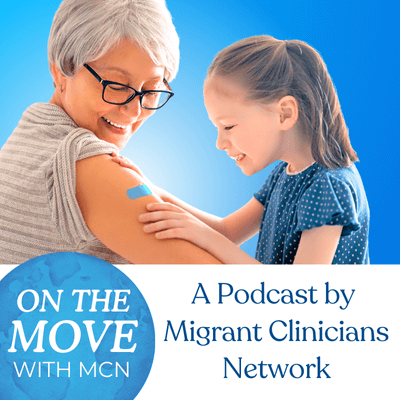Partner Spotlight: Cottage House Inc.

[Editor’s Note: In 2021, Alianza Nacional de Campesinas, Migrant Clinicians Network (MCN), Rural Coalition and 20 organizational partners and members mobilized 221 community health outreach workers across 20 states and Puerto Rico through a learning collaborative to encourage vaccination within rural communities of color including Black and Indigenous communities. Funded by an $8.1 million grant from the Health Resources & Services Administration, the effort aimed to raise vaccination rates among immigrant and migrant farmworkers and rural communities of color through reinforcing COVID-19 information, addressing vaccine hesitancy and accessibility, and assisting in countering misinformation and disinformation.]
The Black Belt is a region of the southeast US that is defined socially, economically, and geographically by the expanse of highly fertile black soil. Following the abolition of chattel slavery, many of those who were enslaved to work on the fertile lands remained in the region. However, their opportunities for economic advancement and ability to build political power were sabotaged by Jim Crow laws and segregation. To this day, Black Belt counties remain under-resourced and disadvantaged due to institutional racism. These disadvantages were apparent as the region was ravaged by the COVID-19 pandemic. In Alabama, Cottage House Inc., a local nonprofit, aims to provide the tools and leadership training needed in these rural communities to empower community members and their families to transcend the economic boundaries that have long affected rural Black communities in the Black Belt.

Cottage House educates farmers on how to best enter new markets and teaches them how to clean and package their products after harvesting. Barbara Shipman, the Executive Director of Cottage House and a presenter at an MCN-hosted learning collaborative, owns and operates a USDA-certified organic farm. Shipman uses her expertise to help farms in the Black Belt become certified organic and provides technical assistance on how to run an organic farm, so local farmers can grow healthier produce and receive better prices for their goods. Cottage House also assists farmers with acquiring Good Agricultural Practices certifications. Additionally, Cottage House has trucks that ship produce for Black Belt farmers to increase the number of states in which they can market their goods.

The pandemic deeply impacted Black Belt communities. In response, Cottage House pivoted its focus, helping to get community members vaccinated and providing other needed medical services. Using a mobile medical hospital, Cottage House provides services to the Black Belt community such as annual physical exams, acute sick appointments, prescription filling, and x-rays. Since COVID-19 vaccines were more readily available, Cottage House has provided vaccinations through both the mobile hospital and through home visits. Some of the clinicians Cottage House works with are medical students who can acquire credits while they assist rural counties that have been underserved in the past. This practice has been an effective strategy for the organization as a way to get motivated and well-educated staff to administer vaccines to people who have limited ability to get vaccinated.
Cottage House has raised awareness about vaccination events by placing ads in local newspapers. However, according to Shipman, one of the most effective methods of spreading information about their work and their mobile clinics has been word of mouth. “When you do a good job to help someone, they love to share that information with others,” Shipman explained.

Shipman shared that Cottage House has experienced challenges, including some hostile encounters with individuals who have voiced a distaste for Cottage House’s COVID-19 prevention work and who have, in some cases, made it unsafe for the mobile hospital to operate. When encountering extreme anti-vaccination or racist sentiments that make any members of the organization or health care workers fear for their safety, the mobile hospital moves on to the next area. In addition to these challenges, they have also encountered power outages which has hindered their ability to vaccinate. Despite these setbacks, Cottage House has successfully stepped up to fill the health care gaps that these under-resourced communities have and ensure vaccine accessibility.
Each week, MCN facilitated a bilingual Learning Collaborative that offered partners access to clinical staff, other experts, an extensive library of fully editable COVID-19 resources, evidence-based COVID-19 updates, and extensive communications and marketing technical assistance to support partner’s use and adaptation of resources to fit their community’s needs. Each organization shared learning collaborative content and activities with their frontline community health workers, who tirelessly promote COVID-19 vaccination in the counties, towns, and neighborhoods where they live. This blog series highlights best and promising practices used by grant partners across the country, which were shared at the learning collaboratives, creating a diverse learning environment.
This is supported by the Health Services and Resources Administration (HRSA) of the U.S. Department of Health and Human Services (HHS) as part of an award totaling $8,105,547 with 0% percentage financed with non-governmental sources. The content are those of the author(s) and do not necessarily represent the official views of, nor an endorsement, by HRSA, or the U.S. Government. For more information, please visit HRSA.gov.
Got some good news to share? Contact us on our social media pages above.
Return to the main blog page or sign up for blog updates here.
- Log in to post comments





